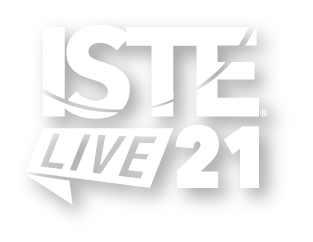

Inclusive Maker Ed for All |
Participate and share : Poster
Abbey Ramdeo
Creating hands-on makerspaces and incorporating maker education can seem daunting when facing challenges like tight budgets, remote learning or limited connectivity. See specific examples of how to overcome constraints to build inclusive makerspaces for all contexts. Leave with a maker toolkit to help you get started!
| Audience: | Professional developers, Teachers |
| Skill level: | Beginner |
| Attendee devices: | Devices useful |
| Attendee device specification: | Smartphone: Android, iOS, Windows Laptop: Chromebook, Mac, PC Tablet: Android, iOS, Windows |
| Topic: | Maker activities & programs |
| Grade level: | PK-12 |
| Subject area: | Science, STEM/STEAM |
| ISTE Standards: | For Educators: Designer
Innovative Designer
|
This session will provide solutions for challenges commonly faced by teachers when implementing makerspaces and/or maker education in the classroom:
1. Materials (limited budget)
2. Delivery (teaching online, limited connectivity (e.g., rural and remote))
By exploring potential solutions when faced with these constraints, participants can start to explore what inclusive practices might be for creating diverse makerspaces that can reach all learners. Multiple examples will be provided so that participants feel ready to combine theory and practice. Participants should leave feeling empowered to create a makerspace in their learning environment, incorporate maker education into their teaching practice, and/or understand the value of maker education in diverse contexts.
The following resources have informed this work:
Importance of Inclusive Education:
OISE: A Discussion of Inclusion - A brief introduction to inclusion, inclusive schools and barriers to inclusion (https://www.oise.utoronto.ca/cld/UserFiles/File/briefintrotoinclusioninclusiveschoolsandbarrierstoinclusion.pdf)
OISE: Inquiry into Practice - Reaching Every Student Through Inclusive Curriculum (https://www.oise.utoronto.ca/oise/UserFiles/File/ITE_PUB_2011_COMPLETE_LR1.pdf)
Government of Ontario: Ontario's Equity and Inclusive Education Strategy (http://edu.gov.on.ca/eng/policyfunding/equity.pdf)
Importance of Makerspace/ Inclusive Makerspace Environments:
Recognized Experts: Yasmin B. Kafai, Jannette Hughes
Government of Ontario: Meaningful Making (http://www.edu.gov.on.ca/eng/literacynumeracy/inspire/research/meaningful_making_en.pdf)
Research Article: Inclusive Makerspaces, Fab Labs, and STEM Labs (https://www.researchgate.net/publication/336529762_Inclusive_Makerspaces_Fab_Labs_and_STEM_Labs)
Book: Makeology - Makerspaces as Learning Environments (Volume 1)
Research Article: Electronic Textiles as Disruptive Designs - Supporting and Challenging Maker Activities in Schools
